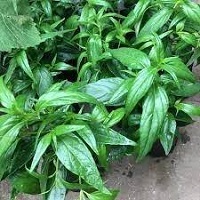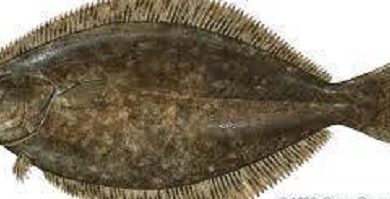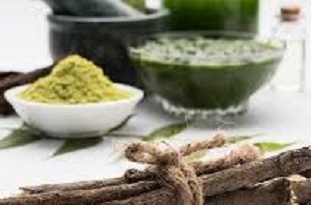Serpentina Benefits, Uses, and Side Effects
Serpentina Benefits, Uses, and Side Effects. Please watch.

Health Benefits of Serpentina Leaves
Here’s everything you need to know about serpentina benefits, as well as side effects:
Serpentina, Rauwolfia, or Indian snakeroot is the scientific name for Rauvolfia serpentina, a milkweed-like flower.
The root of this herb, which is native to India, is the medically significant portion, hence the name.
Serpentina Leaf Plant – Serpentina Benefits
It’s a common plant in Southeastern Nigeria, and it’s been said to provide a variety of medical and health benefits.
It is the Igbo native doctors’ traditional method of treating snake bites in Nigeria.
Uses in General
Indian snakeroot has been used in Ayurvedic medicine in India for centuries, mostly to treat high blood pressure and mental diseases including schizophrenia and anxiety.
In addition, one of the compounds in Indian snakeroot is the same as reserpine, a prescription medicine.
High blood pressure, schizophrenia, and some indications of poor circulation have all been treated with reserpine.
How Does It Work ~ Health Benefits of Serpentina Leaves and Capsules
It acts by inhibiting nerve signals and relaxing the cardiac muscles and blood vessels. Blood pressure is lower when blood vessels are relaxed because they have less resistance.
Furthermore, the heart beats at a slower rate, allowing it to recuperate and pump blood more effectively.
Because it can depress the central nervous system, serpentina has been used to treat anxiety, sleeplessness, and certain mental illnesses.
It was found to reduce people’s agitation, excitation, hallucinations, and withdrawal symptoms.
More than only decreasing blood pressure is one of the benefits of serpentina use. It has been used to treat various diseases in both Chinese and Ayurvedic medicine.
Traditional uses of serpentina/Indian snakeroot
- Blood pressure reduction
- Diagnose and treat schizophrenia, anxiety, and other mental illnesses
- Increase the number of uterine contractions
- Relieve pain in the joints and throughout the body
- Serpentina leaves tea benefits for diabetes, kidney
- Prevent epileptic seizures
- To treat animal bites as antivenom or antitoxin
Precautionary measures
Due to its abortive effect, serpentina is not suggested for breastfeeding or pregnant women.
Serpentina can result in a miscarriage or abortion during pregnancy.
It has been demonstrated in animal tests that it can cross the placenta and harm the infant. As a result, do not use this herb unless your doctor has permitted it.
While using serpentina, do not breastfeed. Only take serpentina preparations if your doctor determines that the possible benefits outweigh the hazards.
Side Effects
Aside from learning about serpentina and its benefits, it’s also crucial to be aware of the potential for adverse effects.
Changes in mood and mental states, such as drowsiness, sadness, and psychosis, are the most significant.
Nasal congestion, nausea, vomiting, cough, nightmares, stomach ulcers, and galactorrhea are all possible adverse effects.
People also ask
What is serpentina used for?
Rauwolfia serpentina is a safe and effective hypertension treatment.
Many physicians throughout India used the plant in the 1940s, and it was then used all over the world in the 1950s, including in the United States and Canada.
What are the side effects of serpentina?
Nasal congestion, stomach cramps, diarrhea, nausea, vomiting, loss of appetite, drowsiness, convulsions, Parkinson ‘s-like symptoms, and coma are all possible side effects.
Is serpentina a medicinal plant?
Rauwolfia (Rauwolfia serpentina), also spelled ravolphia, is a milkweed family medicinal plant.
The plant’s root is ground into a powder and sold in tablets or capsules. It is a compound that is commonly used in Asian medicine, including traditional Ayurvedic medicine from India.
How do you take serpentina?
For the plant Rauwolfia serpentina
High blood pressure treatment: Adults should consume 50 to 200 milligrams (mg) per day.
This can be taken as a single dose or split into two. Your doctor will determine the appropriate dose for your child.
When is the best time to take serpentina?
The usual dose is 600 mg per day, taken about an hour before bedtime.
Because rauwolfia causes a decrease in monoamine activity, those who take it should be monitored for the onset of depressive symptoms.
Is serpentina good for kidneys?
In our in vitro renal cell system, serpentina was capable of producing highly detrimental effects.
More research is needed to investigate the safety of this dietary supplement in both kidneys and other target organ systems.
Can serpentina help lower blood sugar levels?
The study also found that a dose of 28.2 ml/kg Serpentina leaf extract reduced blood sugar levels in hyperglycemic mice after three (3) hours and twenty-four (24) hours of treatment at the 0.05 level of significance.
Are serpentina leaves good for diabetes?
In fructose-induced type 2 diabetic mice, serpentina improves carbohydrate and lipid homeostasis by either inhibiting fructose absorption in the intestine or decreasing insulin resistance.
Is serpentina good for the thyroid?
T4-induced thyrotoxicosis may be alleviated by serpentina root extract with little or no hepatotoxicity.
As a result, it is suggested that this plant extract be considered for the treatment of hyperthyroidism.
Some herbs and spices may likewise help lower blood pressure.
- Share on Pinterest Natasa Mandic/Stocksy United
- Parsley (Petroselinum crispum) is a popular herb in American, European, and Middle Eastern cuisine
- Garlic
- Thyme
- Cinnamon
- Celery seeds
- Chinese cat’s claw
- Bacopa monnieri
Can serpentina lower cholesterol?
Serpentina may also be useful in the treatment of atherosclerosis, as evidenced by a decrease in LDL-C serum levels in test rabbits.
The link between LDL-C and atherosclerosis has already been established
Is serpentina good for anxiety?
According to a study of matched patient groups, the effectiveness of Rauwolfia serpentina drugs in the control of overt anxiety in ambulatory psychiatric patients is equal to that of conventional anxiety treatment.
Is serpentina an anti-inflammatory herb?
serpentina), a member of the Apocynaceae family, is a well-known medicinal herb known for its antibacterial, antifungal, anti-inflammatory, and antiproliferative properties.
How bitter is serpentina?
Serpentina is also known as the King of Bitters due to its extreme bitterness, with a tiny leaf infusion being 10 times or more bitter than a large ampalaya extract.
It helps diabetics regulate or lower their blood sugar levels. It is also known for its antibiotic properties, making it effective against infections.
What is the cause of high blood pressure?
High blood pressure typically develops gradually.
It can occur as a result of unhealthy lifestyle choices, such as a lack of regular physical activity.
Diabetes and obesity are two health conditions that can increase the risk of developing high blood pressure.
Serpentina Leaves Tea Benefits
Serpentina leaves, also known as Sarpagandha or Indian snakeroot, come from the plant Rauwolfia serpentina. This plant is native to the Indian subcontinent and has been traditionally used in Ayurvedic medicine for various purposes. Serpentina leaves are particularly known for their potential health benefits, especially when brewed into tea. Here are some of the potential benefits associated with serpentina leaves tea:
- Blood Pressure Regulation: Serpentina leaves contain alkaloids such as reserpine, which have been found to have hypotensive (blood pressure-lowering) effects. This makes serpentina tea potentially beneficial for individuals with high blood pressure.
- Stress and Anxiety Reduction: Some studies suggest that compounds found in serpentina leaves may have anxiolytic (anti-anxiety) effects. Drinking serpentina tea might help in reducing stress and anxiety levels.
- Sleep Aid: Due to its calming effects, serpentina tea is sometimes used as a natural remedy for insomnia or sleep disturbances. It may help promote relaxation and improve sleep quality.
- Migraine Relief: Traditional medicine practices often use serpentina leaves for managing migraines and headaches. The vasodilatory properties of certain compounds in serpentina may help alleviate migraine symptoms.
- Antioxidant Properties: Serpentina leaves contain antioxidants that can help protect cells from damage caused by free radicals. Antioxidants are important for overall health and may play a role in reducing the risk of chronic diseases.
- Anti-inflammatory Effects: Some research suggests that serpentina leaves may possess anti-inflammatory properties, which could be beneficial for conditions involving inflammation, such as arthritis.
- Digestive Health: In traditional medicine, serpentina leaves are sometimes used to improve digestion and alleviate gastrointestinal discomfort.
- Potential Anticancer Properties: There is ongoing research into the potential anticancer properties of compounds found in serpentina leaves. Some studies suggest that certain alkaloids present in serpentina may have cytotoxic effects on cancer cells.
It’s important to note that while serpentina leaves tea has potential health benefits, it’s essential to consume it in moderation. As with any herbal remedy, it’s advisable to consult with a healthcare professional, particularly if you have any underlying health conditions or are taking medications, to ensure it’s safe for you. Additionally, more research is needed to fully understand the effects and potential side effects of serpentina tea.


